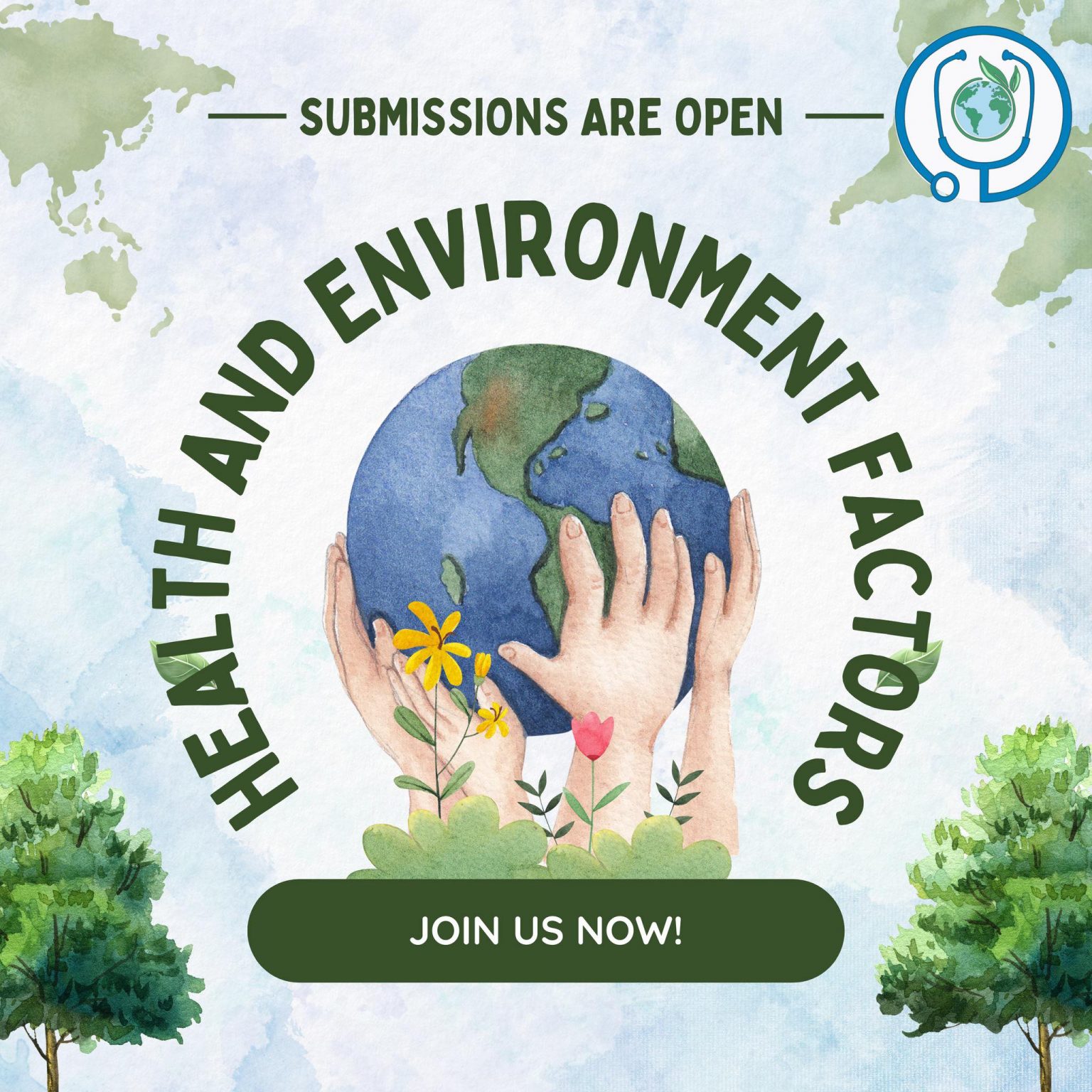First Semester
Five (5) compulsory core courses, as listed below:
Introduction to Environmental Sciences
This course covers basic environmental concepts involving the atmosphere, water, and soil. Topics include air pollution, climate change, solar radiation, extreme weather events, water environments, drinking water, soil, and pollution from human activities. Introductory elements from Atmospheric Sciences (Meteorology, Climatology, Atmospheric Environment), Hydrology (Water Cycle, Water Pollution), Agricultural (Soil, soil burden from pesticide use), and Biological Sciences (Ecological models, pollen) are developed. The goal is for the student to become familiar with the terminology of Environmental Sciences and understand key mechanisms related to environmental processes and tools for studying the environment. Emphasis will be placed on accessing open environmental data.
Introduction to Basic Biomedical Sciences
Understanding the impact of environmental factors on health requires knowledge and comprehension of the exposure and metabolism pathways of the human body. The course will cover the basic morphological characteristics of various tissues, organs, and systems, emphasizing the texture and function of body tissues and their significance in building and operating organs. Basic metabolic pathways of the human body, metabolic diseases, biochemical and molecular bases of tissue and system functions and corresponding diseases, and the basic principles of pharmacokinetics and pharmacodynamics, along with drug effects, will be analyzed. Finally, the course includes studying morphological alterations in tissues and organs by systems, epidemiological data, pathogenesis mechanisms, predictive and prognostic factors for pathological conditions, and neoplasms.
Structural Materials, Radiation, and Health
This course covers the impacts of radiation and chemical emissions from certain natural and artificial structural materials on the human body, found in indoor environments of homes and workplaces. The role of various natural and artificial structural materials, such as rocks, concrete, cement, bricks, plasters, tiles, paints, metals, chemically treated wood elements (like floors, furniture, etc.), the effects of natural radioactivity, and chemical emissions, the “sick building syndrome,” and the assessment of risk from radiological and chemical emissions will be analyzed. Methods for controlling, preventing, and addressing these effects through interactive teaching, laboratory measurements, field measurements, and application of computational tools will be taught.
Impact of Environmental Factors on the Human Body
The course aims to introduce environmental parameters that can affect human tissues and, consequently, human health. Environmental factors may refer to atmospheric (like atmospheric composition, pollutants, natural emissions), climatic (e.g., temperature, precipitation), or water parameters. The histological effects of these elements can be of different types and affect various systems of the body simultaneously (e.g., skin cancer, infectious diseases, respiratory diseases, etc.). Emphasis will be placed on analyzing healthy histological structures of various organs, the alterations that can be observed, and their correlation with environmental factors.
Crisis Management in Environmental Disasters
This course addresses managing natural resources for health benefits in environmental disaster scenarios. Disasters can disrupt the balance of materials and elements in air, soil, and water, necessitating the proper management of financial resources to restore them to their previous state and address the changes caused. Health is one of the main areas affected by environmental disasters. Poor organization by the state in managing financial resources to address diseases and conditions arising from such crises can perpetuate the problem without achieving a definitive solution. This course analyzes the economics and policies of fishing, mineral extraction, oil and natural gas, forest resources, agriculture, and the environment, focusing on managing these resources for public health benefits.
Second Semester
Five (5) compulsory core courses, as listed below:
Pathogenic, Mutagenic, Toxic Factors – Carcinogenesis, Teratogenesis, and Environment
This course includes detailed teaching of pathogenic agents, potential and known mutagenic and toxic environmental factors, their formation and accumulation, their danger levels, and the damages they can cause at the cellular level, in tissues, organs, and entire plant and animal organisms affected in soil, water, and air. Methods for controlling these factors through interactive teaching and laboratory exercises will be taught. The concepts of teratogenesis and carcinogenesis, especially related to the modern lifestyle of industrialized countries, and the ways of their formation, prevention, management, neutralization, and destruction with minimal environmental burden will be analyzed.
Study of Environmental Issues in Health Situations
This course analyzes the dependence of diseases on environmental parameters over different time and geographical scales and the statistical correlation of environmental parameters (air, water, soil) with disease occurrence. It covers extreme meteorological phenomena (floods, heatwaves) and their impact on vulnerable population groups, the concentration of pollutants, toxic and allergenic substances in the atmosphere, water, and soil, and their corresponding health impacts, and climate changes (solar radiation, “ozone hole,” etc.) related to infectious, cardiovascular/respiratory diseases, neoplasms, dietary changes, and vitamin deficiencies.
Environmental Factors and Specific Human Body Systems
The Central and Peripheral Nervous System of humans is subject to the harmful effects of numerous environmental factors. Specific areas of the nervous system, along the “cortex-peripheral nerves” axis, are selectively vulnerable to toxic agents, causing particular clinical entities with symptoms from both the neurological and psychiatric spheres. The course will present the pathophysiological mechanisms and clinical manifestations of environmental toxin effects on the nervous system. It will also cover the neurological impacts of toxins from social use (e.g., alcohol) and iatrogenic causes. Finally, diagnostic approach algorithms and therapeutic management of this significant medical-social problem will be proposed.
The Impact of Nutrition on the Human Body
This course examines basic concepts related to human metabolism and the body’s nutritional needs and various conditions in which nutritional issues are involved in their etiology. It also examines different types of diets and eating habits, emphasizing their impact on tissues and, consequently, human health. Special feeding conditions, such as feeding groups with increased needs (pregnant women, infants, children), elderly feeding, and individuals with metabolic diseases, will also be analyzed. Finally, modern developments in food science and some basic principles of nutrition concerning different countries or cultures will be discussed.
Geographic Information Systems – Biostatistics – Medical Informatics
The course aims to develop skills in experimental design and experimental data management to safely draw conclusions on environmental impacts on human health.
Subunits to be developed include:
- Presentation of Geographic Information Systems (GIS) applications.
- The nature of geographic data – concept of geographic space.
- Experimental design, hypothesis, layout.
- Data collection (creation of arc catalog library).
- Geometric and thematic data – digitization of numerical and qualitative data.
- GIS data presentation in arc map.
- The role of GIS in decision-making (GIS and primary and secondary medical care management, GIS and diagnostic practices).
- Descriptive statistics and graphical representation.
- Reliability and Accuracy – Uncertainty.
- Statistical tests of experimental hypothesis (parametric and non-parametric tests).
- Multivariate data analysis.
- Graphical presentation of experimental data.
- Queries, measurements, transformations – Descriptive summary and conclusion extraction.
- Special applications and independent medical informatics software in managing environmental factors’ effects on human health.






